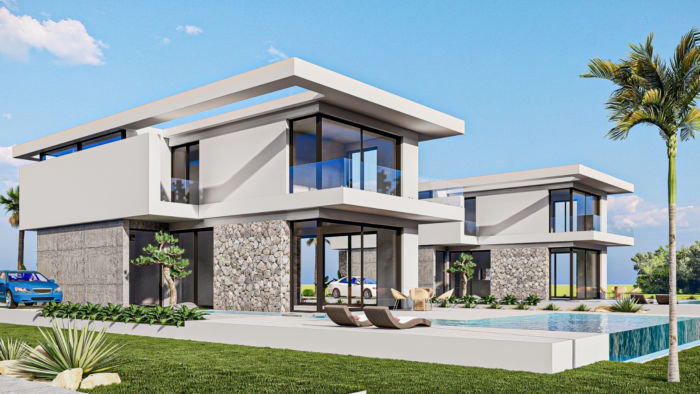
Foreigners, including Israelis, Russians, Ukrainians, and Iranians, have purchased thousands of homes and plots of land in the Turkish Republic of Northern Cyprus (TRNC). Concerned about potential Zionist occupation, the TRNC government plans to close legal loopholes and restrict these sales.
Recent geopolitical developments and regional dynamics have renewed international interest in the TRNC. The region's natural resources and improving infrastructure attract real estate investors. Forbes magazine has highlighted the TRNC as a prime location for property investment, noting the benefits of rental income in pounds and quick investment returns of under 10 years.
However, in the past year, the sale of thousands of properties to nationals from countries like Israel, Russia, Ukraine, and Iran has sparked controversy, prompting the TRNC government to revise its property sales regulations.
A new law published in the Official Gazette introduces limits and conditions on sales to foreigners, aiming to reduce housing prices and make homes more accessible to residents.
The TRNC Parliament has also revised regulations on foreign investment in land. While the land area foreigners can buy remains the same, the investment requirement has increased from 3 million to 20 million euros. Unlike the previous law, which did not specify the nature of the investment, the new law mandates that the 20 million euro investment must include industrial, educational, or health projects.
If these investments are not realized within two years, the land will be repossessed. Foreign-owned unregistered properties must now be registered, and excess land or properties must be sold within two years, with contracts reported to the Land Registry Office within six months.
Viewing foreign property sales as a strategic risk, the TRNC government has facilitated increased investments by Turkish citizens. They can now purchase up to 3 properties, compared to 1 previously.
"Foreign buyers have been acquiring land and houses for the past 3 years. However, Turkish citizens were limited to 1 property. The new law restricts foreign purchases and allows Turkish citizens to buy 3 properties. The increased foreign interest had significantly raised prices, making it difficult for locals to afford housing. Now, we expect prices to become more accessible," real estate sector representatives in the TRNC said.
Industry experts categorize TRNC property buyers into 2 groups: investors and residents.
"The first group focuses solely on investment, which is logical given the region's rapid development. Real estate transactions are in British pounds, minimizing the risk of loss. Currently, a 2+1 apartment in Kyrenia yields a monthly rent of £600-£800.
The second group seeks residency. These buyers are mostly from neighboring countries, with Turkish citizens leading the way, drawn to the island's natural beauty and tranquility away from metropolitan chaos," real estate sector representatives said.
Property prices in the TRNC vary by region. For example, a 2+1 apartment in Nicosia costs around £60,000, while in Kyrenia, prices can reach £120,000. Famagusta offers more affordable options, and the rapidly developing Iskele region is becoming a prime location. The TRNC boasts 21 universities and over 100,000 students, with 145 hotels and more than 2 million tourists visiting annually.
Industry representatives predict that within 10 years, Kyrenia and Iskele will become the new "Bodrum" and "Cesme."
In addition to housing, there is growing interest in land investments in the TRNC. Due to the limited number of zoned plots, their prices are close to those of houses, but agricultural land presents an investment opportunity.
The island offers vast and fertile lands, though water scarcity limits their productivity. However, hydroponic farming and greenhouse production are viable. The government assures sufficient water reserves. Agricultural investors primarily grow cereals, legumes, fruits and vegetables, and industrial crops.
To undertake construction in the TRNC, following these steps are crucial:
This self-regulatory system ensures robust quality control and should be maintained, with the visa system remaining intact.